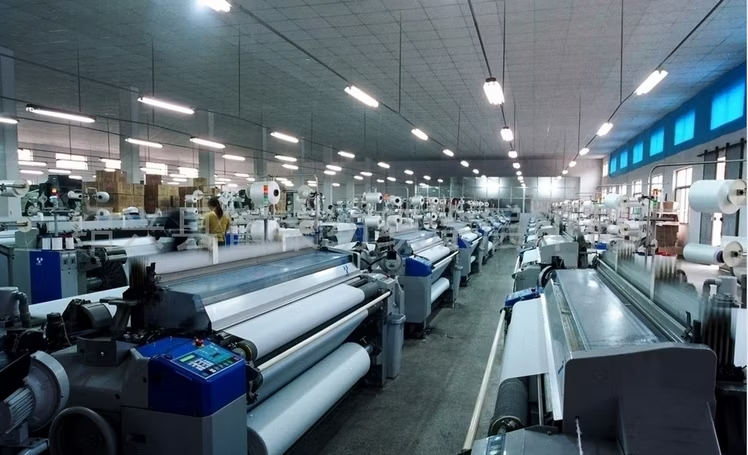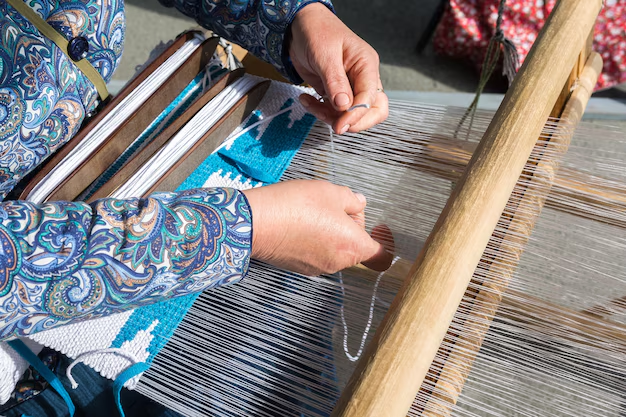Difference between mill-made vs handwoven textiles
Fabrics can be created by either machines (mill-made fabrics) or by hand (handmade fabrics). Each method includes so many different types of fabrics, depending on the material and technique used.
Before the invention of textile machines, clothing was manufactured entirely by hand a long time ago. Subsequently, clothing produced on a machine gained enormous popularity and dominated the market. But handmade clothes never completely disappeared, and India is one of the remaining countries where we can find the most hand-woven fabric produced. Even today, many people still love and prefer them because they are strong, long-lasting, and one-of-a-kind.
Mill-made fabrics are made by making use of machines. Handwoven fabrics are completely made by hand. Let’s explore more about the differences between each type of fabric below.
At Green Tailor, we are dedicated to providing natural fabrics that are mill-made or handmade. In this article, we will focus on comparing these 2 ways of producing only on natural fabrics.
Mill-made fabrics

The machine-made fabrics have mass production, affordability, and extensive availability in numerous stores. You can obtain a variety of designs, colors, and patterns as machines can make uniform and accurate fabrics.
There are numerous kinds of mill-made fabric types using various fibers like cotton, organic cotton, linen, silk, wool, hemp, or bamboo. The fabric mill can turn yarn into fabric which is in less time. A handloom weaver may take 2-3 hours to produce a meter of fabric, depending on the weaver’s skill. In contrast, a modern power loom can produce 100 to 150 meters per minute or more, depending on the type of fabric.
These fabrics are more breathable, skin-friendly, and eco-conscious. They offer the comfort of natural materials with the ease and availability of machine-made fabrics. China is the top producer of mill-made fabrics, followed by India and Bangladesh.
Handwoven fabrics
Handwoven fabrics are created by skilled artisans who weave the fabric entirely by hand using traditional looms. This process is much slower, and these fabrics often have unique texture and character. The handwoven cloth can be more expensive than machine-made because it takes longer to make and requires special skills. They are considered more eco-friendly and support local artisans and traditions.
India is the top producer of handwoven fabrics around the world. Nearly 95% of the fabrics come from India. From khadi and ikat to silk sarees, India’s handloom sector plays a vital role in preserving cultural heritage while supporting millions of skilled artisans across the country.
It is also more environmentally friendly. Producing one meter of handwoven khadi uses about 3 liters of water, whereas the same length of machine-made fabric can require up to 55 liters.

Discover here our collection of handwoven and undyed artisanal fabrics
Our collection showcases different types of handwoven fabrics, including khadi and silk varieties such as khadi 40, khadi 55, kala cotton, khadi organic cotton, wild silk, and many more. We have worldwide shipping, so no matter your location.
What is the difference between mill-made and handmade textiles?
| Features | Machine-made textiles | Handwoven textiles |
|---|---|---|
| Production | Made by machines or mills | Made by hand on traditional looms |
| Speed | Fast, mass production | Slow, detailed process |
| Cost | Usually affordable | Usually more expensive |
| Availability | Widely available | Limited, often regional or artisanal |
| Uniqueness | Consistent, repeated patterns | Unique texture and design variations |
| Environmental impact | Often higher due to machines and chemicals | Generally lower, eco-friendly process |
Which fabric should you choose?
The choice between mill-made and handcrafted fabrics depends on your needs. Both are good choices. If you are looking for something unique, eco-friendly, and crafted with care, handwoven fabrics are worth the investment. But if you want something affordable, durable, and easily available in fabrics, you can go with mill-made fabrics.
At Green Tailor, we are proud to support sustainable fashion by supplying our natural fabrics and sustainable products. We supply natural fabrics and sustainable products such as cotton, organic cotton, silk, wool, and handcrafted fabrics. We supply the fabrics and products worldwide with NO MOQ. Moreover, we offer additional custom services like fabric sourcing, natural dyeing, stitching, tailoring, custom-made products, and many more.
For more information about our services, contact us at [email protected].
